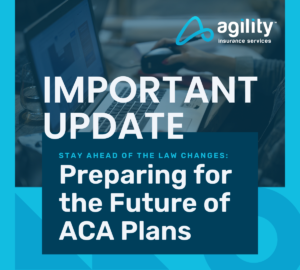1. The big beautiful bill and ICHRA
The bill that’s been all over the news is making some big swings for the ICHRA and HSA’s. Below is an outline of some of the proposed updates and changes:
- Codification of ICHRA into a law
- Updating the naming convention from ICHRA to “Choice Arrangements”
- Employees would be allowed to pay their share of premiums on a pre-tax basis
- Opening ICHRA up to employees on Medicare Part A
- Increased flexibility and integration with other health savings tools such as HSA (More on that below)
- Potential tax credits to employers for ICHRA (similar to state based incentives from states such as Indiana)
2. zizzl’s inaugural ICHRA conference
This week was zizzl health’s inaugural ICHRA conference and it was awesome! They highlighted the pyramid of ICHRA stakeholders: brokers, employers and carriers. My key takeaways from the conference were:
- Its employee benefits, plural – ICHRA is simply one key component of the benefit, there’s an entire catalog of benefits available to employers and employees. If you can unlock all of these, you are going to be ahead of the curve. HINT – Supplemental, Life and Ancillary offerings are key here. Also HINT – there’s more accounts at play here than just ICHRA, there’s QSEHRA, EBHRA, FSA, Lifestyle benefits accounts, Spousal Incentive HRA’s and more!
- Broker engagement is key – Deft Research released their findings at the event (more on that below) and to me a key finding was, broker perception is different from employer and employee perception. Brokers sell group plans and it’s going to be brokers that grow this vertical. The question is, will it be group brokers, ACA brokers or the platforms acting as the brokers themselves?
- ICHRA is a solution and solutions require a sales strategy – Many brokers who have sold direct to consumer products such as ACA and MA are oftentimes doing a transactional sale. ICHRA / Choice requires a consultative sales process requiring problem identification and problem solving. For employers, the issue is often a cost issue. I recommend the following flow:
- Get the census (for those unfamiliar – this is the detailed employee-level data to help carriers or administrators accurately calculate risk (for fully insured plans), eligibility, and rates
- Show the comparison (All of the platforms will provide this)
- Make sure you are quoting and providing ancillary and supplemental products
- Outline the differences (pros and cons)
- Hold the employers hand through the process with the vendor
- Don’t try and be the total package, ego is no amigo. The vendors will be a partner in this, use them
- Be present for the enrollment
- Communicate regularly with the vendor on this case and all cases (create the feedback loop)
- Payment & Reimbursement reports
- Enrollment & Participation metrics
- Documentation & Compliance
- Financial & Billing Accuracy
- Upcoming milestones & Support issues
- Rinse and Repeat
4. There’s an MA play here as well – ICHRA regulations allow employer to offer tax-advantaged reimbursements for Medicare Part B and Part D, Med Sup and Stand alone dental and vision for Medicare beneficiaries. There’s 2 opportunities here:
- Retiree carve outs
- Transition group retirees to Medicare + ICHRA
- Help set up reimbursement structures
- Offer consultative guidance on plan selection and Part D coverage
- Age-based ICHRA design
- Carve out 65+ employees from group plans
- Offer them ICHRA instead, reimbursing their Medicare premiums
- Save significantly on premiums vs. traditional group coverage
3. Deft Research’s inaugural look at ICHRA
Deft, a name many of us know from their work in ACA and Medicare, has released their inaugural look at ICHRA and its juicy. For the full report, you can see it here. Deft reveals 5 key takeaways in their report:
- Employer awareness gaps persist
- Benefits consultants are ahead of employers in ICHRA familiarity
- Cost savings and employee satisfaction are strong value drivers
- Client satisfaction and consultant engagement are closely linked
- ICHRA adoption is growing
Personally, the most important thing I took from the report was that even employers who didn’t adopt ICHRA, showed more favorability to their broker for showing it to them than the employers who weren’t shown the option. It shows that by simply providing your prospect more options, you’re more likely to win cases, even if it’s just winning over the BOR!
I have a deeper dive into the key findings below.
4. The big beautiful bill and HSA’s (it’s ICHRA adjacent!)
- Allowing individuals who enroll in Medicare Part A to be HSA-eligible
- Allowing individuals to be HSA eligible if they have a direct primary care membership up to $150 a month
- Adding the ability to use HSA’s for DPC membership fees
- Allowing individuals to be HSA eligible if they are enrolled in any Bronze or catastrophic plan on the Exchange
- Allowing individuals with access to an on-site medical clinic proving certain limited services to be HSA eligible
- Adding the ability to use an HSA for gym memberships and other similar exercise / activity costs of up to $500 a year
The 2025 Deft / zizzl ICHRA report
The 2025 ICHRA Report, a collaborative study by zizzl health and Deft Research, provides a comprehensive analysis of how Individual Coverage Health Reimbursement Arrangements (ICHRAs) are perceived by employers and benefits consultants. Surveying 254 employers and 220 consultants, the report uncovers key insights into awareness, adoption, and satisfaction levels surrounding ICHRAs.
Key Findings:
- Awareness Gap: Nearly 50% of employers not currently offering ICHRAs are unaware of this option. Most did not learn about ICHRAs from their existing consultants, highlighting a significant opportunity for consultants to educate clients on alternative benefits solutions. Conversely, it highlights the risk to brokers from the platforms who are going to go after the business if brokers do not. GO GET IT NOW!
- Consultant Familiarity vs. Action: While benefits consultants generally exhibit higher familiarity with ICHRAs compared to employers, this knowledge doesn’t always translate into proactive client guidance. Bridging this gap is essential for broader adoption.
- Value Drivers and Misconceptions: Employers recognize the potential cost savings and enhanced employee satisfaction associated with ICHRAs. However, misconceptions about complexity and administrative challenges continue to hinder adoption. This is the opportunity!
- Impact of Proactive Engagement: Employers who were introduced to ICHRAs by their consultants reported higher satisfaction levels. This underscores the importance of consultants taking an active role in presenting ICHRA options.
- Growing Adoption: The study indicates a positive trend in ICHRA adoption. Consultants who fail to engage with this evolving benefits model risk falling behind in the competitive landscape. This means group consultants not currently offering the ICHRA and ACA brokers not currently moving to the employer landscape.
This inaugural report serves as a valuable resource for benefits consultants aiming to stay ahead in the rapidly changing healthcare benefits environment. By addressing awareness gaps and proactively guiding clients, consultants can grow their books of business in the employer space by providing education around a new alternative, whether adopted or not.
That’s it for this week! We hope this information helps grow your business and provide value to your partnerships. Look out for even more updates in next week’s newsletter.



